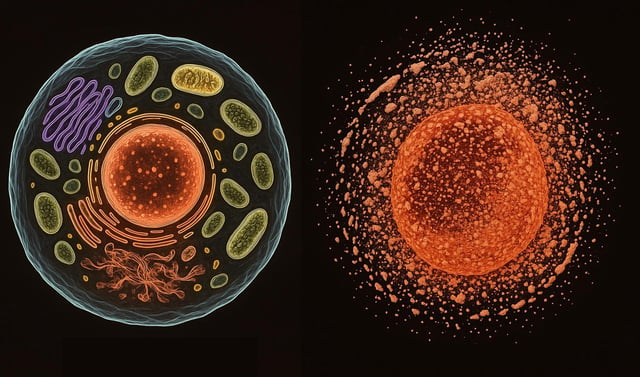Overview
- The research published in Oncogene by UCL, LinkGevity and the European Space Agency reframes necrosis as an active process that accelerates systemic aging rather than a passive endpoint.
- Investigators identified calcium ion overload in cells as the trigger for membrane rupture and inflammation that propagates tissue damage through necrotic cascades.
- Authors propose that inhibiting necrosis may slow or prevent chronic diseases—including kidney failure, heart disease and Alzheimer’s—by interrupting destructive cell death cycles.
- Findings highlight that blocking necrotic pathways could protect astronauts from accelerated organ decline caused by microgravity and cosmic radiation on long-duration missions.
- The study represents a cross-disciplinary effort involving institutions such as UCL, Brigham and Women’s Hospital, Mayo Clinic, NASA’s Space-Health program, MRC Laboratory of Molecular Biology and the University of South Wales.
